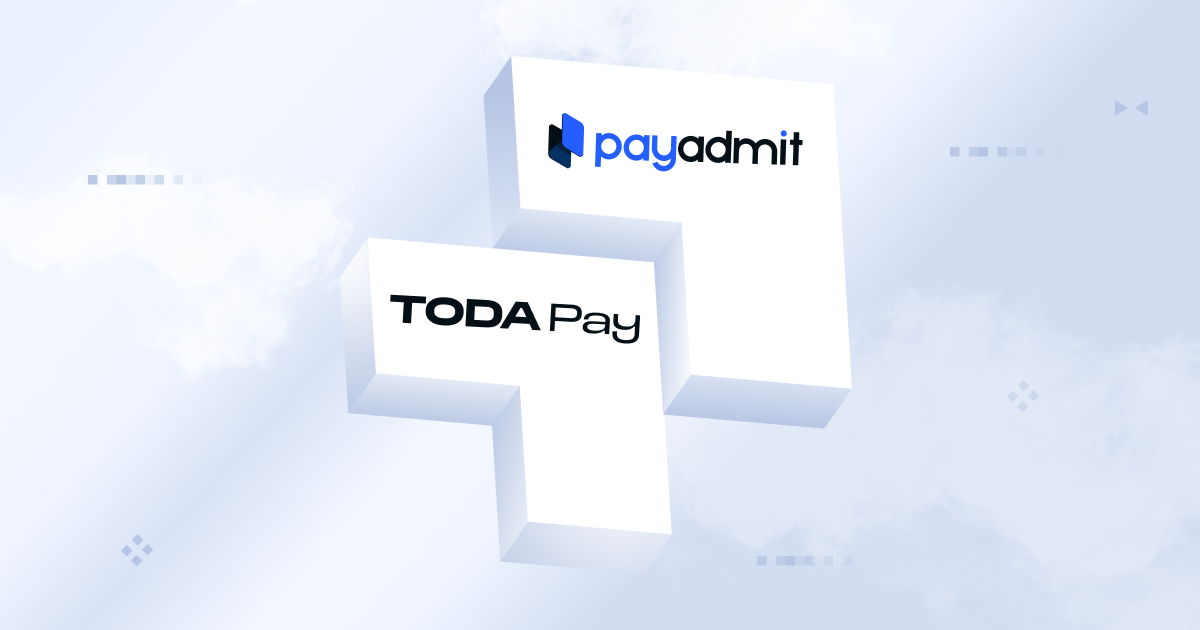Home Blog Merchant account Effortless Merchant of Record (MoR) | The End-to-End Onboarding Solution
Effortless Merchant of Record (MoR) | The End-to-End Onboarding Solution
What is a Merchant of Record (MoR)? A Complete Guide for Global Businesses
Expanding into new markets is a huge business opportunity for commercial companies. Even conservative estimates project that cross-border sales will reach around $1 trillion by 2030. Selling to multiple markets may seem easy, but companies have to navigate complex import laws and financial obligations in foreign countries. To simplify cross-border sales, they collaborate with a Merchant of Record to handle payments, taxes, and compliance. With the right payment service provider, companies can scale their services and expand into new markets with ease. Below, we answer “what is Merchant of Record and how does it work in practice” questions.
What is a Merchant of Record (MoR) and Why Does It Matter?
Merchant of Record acts as an intermediary, selling products and services on your behalf and taking responsibilities associated with financial operations, tax compliance, and other regulatory norms. They are legally viewed as the seller, with the company’s name appearing on bank and credit card statements. Before deciding whether your company needs a MoR, let’s clarify the merchant of record definition and functionality.
Defining the Merchant of Record: The Legal Entity Behind the Sale
A Merchant of Record (MoR) is a company that handles the entire payment process on behalf of your company by taking responsibility for the legal and financial aspects of sales. In other words, it acts as an intermediary between the retailer and its customers when it comes to processing transactions, collecting and reporting relevant tax obligations, and handling all other routine tasks like receipts, refunds, and disputes.
There are two parties involved in the transaction, with ownership of the products or services being transferred from the seller to the buyer. When a select decides to partner with a merchant of record service provider, the process goes from the seller to the MoR, and then from the MoR to the buyer. Here are the main responsibilities of the MoR:
- Handling payment processing: Verifying transactions to ensure that cross-border payments are processed effectively.
- Tax compliance: Complying with local tax laws to ensure that all transactions comply with tax regulations.
- Risk management: Mitigating fraud risks and processing chargebacks to protect businesses from financial losses.
- Currency management: Handling transactions in multiple currencies in accordance with foreign exchange rates.
Merchant of record for SaaS, e-commerce, digital products, and mobile apps has proven to be effective. It is particularly useful for companies operating internationally, as it eliminates the need to manage financial and legal admin themselves. At the same time, a MoR doesn’t impact customers who are making purchases.
How the MoR Model Works in Practice
A MoR takes a lot of responsibilities that affect its overall functionality. It optimizes the checkout experience by allowing customers to use the relevant payment method and transfer money in the preferred currency. A MoR calculates, collects, and remits sales taxes and VAT based on the customer’s location. Even if a company thinks it has no tax obligations in a particular region, the local jurisdiction may think otherwise. A MoR provides customers with invoices for transactions between the business and the MoR and the MoR and the customer. The business’s CRM and other systems are populated with all financial details except full credit card numbers.
There are certain legal obligations that MoRs must meet to ensure all transactions comply with national and local regulations.
The law may change from one region to another, including rules on exports and customer data protection. Fraud prevention comes as part of the legal regulation. A MoR is responsible for minimizing fraudulent transactions to protect businesses and various global acquirers. The machine learning-based fraud engines can be powered with extensive lists of known fraudsters required for effective screening of transactions. A MoR must manage chargebacks, whether they’re official refund requests, unauthorized transactions, or potentially fraudulent claims. In addition, a customer should have a chance to make billing inquiries with a human in the loop. Even though resellers aren’t obliged to handle these types of requests, some MoRs may offer an optional customer support to address complex inquiries.
Key Differences: Merchant of Record vs. Seller of Record vs. Payment Service Provider

The main difference between a Merchant of Record vs. Seller of Record vs. Payment Service Provider lies in the control and flexibility they provide to companies. A MoR offers less control over data, customer experience, and cash flow. A SoR offers the same benefits while retaining access to first-party data and staying in direct contact with its buyers. In contrast, the PSP simply facilitates payment transactions between the merchant and customers, without assuming legal or financial responsibility for sales. The key differences go far beyond that.
Merchant of Record (MoR) is the legal seller of record who handles the entire transaction lifecycle. They take the payment from the consumer and then pay the company, potentially delaying access to funds. They also register with tax authorities in different countries, lightening the regulatory burden on the company. Despite potential delays in receiving revenue, the company can keep their financial processes more organized. A MoR carries full liability, including the calculation and collection of taxes, while ensuring compliance with all relevant legal and regulatory frameworks. What’s good, a MoR supports a wide range of international payment methods and currencies. No need for the company to establish and maintain local legal entities in each target market.
Seller of Record (SoR) is the legal entity that owns the goods or services and is responsible for the sale. Their payment processor is used for securing eh company’s funds. This way, a SoR ensures quick access to revenue without taking part in payment processing. They register with tax authorities, offering regulatory compliance and maintaining control over customer relationships and business operations. The company can directly collect funds from the payment processor. When the time comes, the company can also expand internationally while having full control over branding.
Payment Service Provider (PSP), also known as a technical service provider, facilitates payment processing. They process transactions by connecting merchants to payment networks. Funds are sent directly to the company’s account, allowing full control over cash flow. A PSP doesn’t handle tax registration or remittance, making the company responsible for meeting tax payment thresholds and complying with local tax regulations. Their liability is limited to payment processing in a certain region. Meanwhile, the company gets funds directly to the merchant account, getting immediate access to revenue. The company also has the liability for fraudulent transactions.
When expanding your business globally, managing cross-border transactions properly can be a challenge. To choose the right model, you should focus on the level of control you wish to maintain over your store, data, and finances. In this context, Merchant of Record services offer an easy path to reach new markets, providing advantages adjusted to the company’s strategic needs.
The Pros and Cons of Using a Merchant of Record Service
The merchant of record model can be beneficial to growing businesses and those expanding across international borders. Read on to learn the pros and cons.
Key Benefits: Simplified Global Expansion and Reduced Risk
The key benefits of using a merchant of record model speak for themselves. These include:
- Fast global expansion: If the company wants to jump into the new market before its competitors, they don’t need to learn local tax laws and other regulations. A MoR has everything set up for them, which makes quick expansion easy.
Improved conversion: A MoR offers a smooth checkout experience through optimized, localized checkout processes. For example, registering local bank accounts can prevent failed payments and increase conversion rates. - Fraud prevention: A MoR uses more advanced fraud-prevention mechanisms to reduce the risk of legal repercussions. It can help the company to detect and optimize for the most common scams, leading to fewer false declines from legitimate customers.
- Enhanced customer experience: A MoR handles customer billing inquiries, refunds, and subscription management on behalf of the company. It ensures faster response times, localized customer support, and higher customer satisfaction, helping merchants focus on core operations instead of administrative issues.
- Robust all-in-one solution: A MoR simplifies end-to-end ecommerce without using internal resources. It offers a robust model that can be easily integrated into the existing system.
Potential Drawbacks: Cost and Less Control Over the Customer Experience
Despite the benefits of using a merchant of record model, there are certain drawbacks to consider. These include:
- High cost: MoRs charge between 5-8% of every transaction, which can be a serious financial burden. A company paying 5% on $3 million in revenue will still pay 5% on $300 million in revenue. MoR fees remain constant regardless of the circumstances.
- Control and flexibility: When you use MoRs, you’re giving up control of significant parts of the company, such as the billing system, customer data, customer experience, and support. Many merchants who have used a MoR model for a while find themselves locked in it due to the migration complexity.
- Contract and cash flow issues: MoRs don’t make immediate payments. While direct payment processing gives you funds in 1-2 days, MoRs might do it in a few weeks. This causes problems for new, dynamic companies that need predictable cash flow.
Do You Always Need a Merchant of Record to Sell Internationally?

Businesses don’t always need Merchant of Record payment processing to expand globally. They can manage payments, calculate taxes, and comply with legal regulations themselves, but this takes effort and extra cost. Meanwhile, MoRs take control over the company’s refunds, chargebacks, customer support, and payment data. Which way to go depends on business goals. Those who are looking for a speedy market entry without any hassle should use MoRs.
When a Full MoR Service is the Right Choice
MoRs work best for small, growing businesses that focus on speed rather than cost optimization and control. Companies looking to scale globally have to manage local tax laws and financial regulations, which can be overwhelming. An increasing number of international operations can strain the existing systems. In this context, companies have to take serious risks. Even the smallest mistake in regulatory compliance can lead to high penalties, which should be a solid motivation for seeking professional assistance.
Mid-market companies with established payment stacks can hardly benefit from MoRs. So do cash flow sensitive businesses that operate seasonally. Also, businesses with complex billing requirements shouldn’t use a MoR model.
The Alternative: Acting as Your Own MoR with a Powerful Payment Partner
You can be your own merchant of record for your business, which requires you to take responsibility for accepting online payments, issuing refunds, and remaining compliant with local laws. You’ll also need to manage payment disputes directly with customers, handle currency conversions, and more. Payment liabilities and responsibilities aren’t going to decrease with time. In case they may get more complex and expensive.
If you think that managing your own MoR can help you save money and retain control over internal operations, you are wrong. It will eventually take a lot of money and time to process payments in compliance with local laws. If something is done wrong, you put your business at risk of huge penalties. Just a few companies with expertise and available infrastructure can act as their own MoRs successfully.
There are obvious reasons why small businesses may decide to act as their own Merchant of Record. If you decide that what you want to do, you need to register a merchant account with an acquiring bank, install a payment gateway, sign contracts with payment providers, ensure compliance with PCI DSS standards, and meet local taxation requirements. For small businesses, the burden can be difficult to bear.
How PayAdmit Empowers You to Conquer Global Markets
Global expansion can be complicated in terms of payment processing, taxation, and compliance. PayAdmit, one of the best merchant of record providers, is here to help your small business manage these responsibilities on your behalf. With our help, your company can step into new markets faster, without navigating local legal systems and making local registrations.
You get access to cross-border payments by supporting hundreds of payment providers, national currencies, and regional checkout experiences. Advanced risk management tools help detect and prevent fraud while minimizing false declines and ensuring smooth transactions. Compliance security makes it possible for you to operate without checking financial regulations in each particular country. This service can be a huge relief for anyone running a business. With that said, PayAdmit takes full liability, giving you enough time and resources to focus on core business operations.
Conclusion: Choosing the Right Model for Your Business Growth with PayAdmit

Now that you know the merchant of record definition, you may be wondering whether it is the right model for your company. Or should you go with a seller of record or a payment service provider? All models provide advantages tailored to different business needs. Your decision should be made based on the level of control you want to maintain over your data and finances.
PayAdmit can help you make the right choice. Acting as a merchant of record provider, we can eliminate the barriers to global growth. Your company can focus on creating products and delivering excellent customer experiences, leaving all regulatory work to us.
PayAdmit allows you to complete global expansion in a short time while efficiently managing the complexities of international e-commerce. Let us optimize your internal operations that best suit your business plans.


